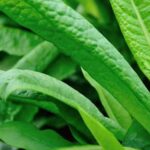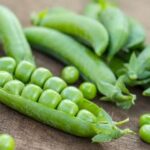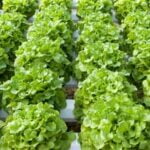What soil is best for vegetable gardens? The answer to this question can make a significant difference in the success of your gardening endeavors. The quality of the soil plays a crucial role in determining the overall health and productivity of vegetable plants. This article will delve into the importance of soil in vegetable gardening, the impact it has on plant growth, and how to identify and create the best soil for your garden.
The foundation of any thriving vegetable garden lies in its soil. The composition and quality of the soil directly affect the nutrients available to plants, their ability to absorb water, and their overall growth and productivity. Understanding what constitutes the best soil for vegetable gardens is essential for any gardener looking to achieve optimal results.
In this article, we will explore various aspects related to soil and vegetable gardening, from understanding soil pH and composition to testing, amending, and maintaining your garden’s soil throughout the growing season. By gaining a deeper understanding of these fundamental factors, you can create an environment that fosters healthy and bountiful produce for your vegetable garden.
Understanding Soil pH
Soil pH plays a vital role in determining the success of vegetable gardens, as it directly affects the availability of essential nutrients to plants. Understanding the significance of soil pH is crucial for gardeners looking to create the best environment for their vegetable plants to thrive.
The Impact of Soil pH on Plant Growth
The pH level of soil influences the availability of nutrients such as nitrogen, phosphorus, and potassium that are essential for the healthy growth of vegetables. In acidic soils with a low pH, certain nutrients like aluminum and manganese become more available, which can be toxic to plants at high levels.
On the other hand, alkaline soils with a high pH limit the availability of nutrients like iron, zinc, and phosphorus. As a result, understanding and adjusting soil pH is key to ensuring that vegetables receive the necessary nutrients for optimal growth and productivity.
Determining Suitable Vegetables Based on Soil pH
Different vegetables have varying preferences when it comes to soil pH levels. For example, acid-loving plants such as tomatoes, peppers, and potatoes prefer a slightly acidic soil with a pH ranging from 5.5 to 6.5.
In contrast, vegetables like spinach, beets, and carrots thrive in neutral to slightly alkaline soil with a pH between 6.0 and 7.5. Understanding these preferences allows gardeners to select and group vegetables based on their compatible soil pH requirements for efficient gardening practices.
Adjusting Soil pH for Vegetable Gardens
If your existing soil does not meet the ideal pH range for your desired vegetables, you can modify it by incorporating organic matter or using specific soil amendments such as lime or sulfur. Regularly testing the soil pH and making necessary adjustments will create an optimal growing environment for vegetables in your garden.
By understanding the significance of soil pH in determining plant health and productivity, gardeners can effectively tailor their gardening practices to create the best possible conditions for thriving vegetable gardens.
Composition of Ideal Soil
When it comes to cultivating a successful vegetable garden, the composition of the soil plays a crucial role in the health and productivity of the plants. The ideal soil for vegetable gardens should be rich in organic matter, well-balanced in essential nutrients, and have the right texture to support plant growth.
Organic Matter
Organic matter is an essential component of healthy soil for vegetable gardening. It improves soil structure, enhances moisture retention, encourages beneficial microbial activity, and provides a steady supply of nutrients to the plants. Incorporating compost, aged manure, or other organic materials into the soil can significantly increase its organic matter content and create a fertile environment for vegetables to thrive.
Nutrients
Adequate nutrients are vital for the growth and development of vegetable plants. Essential macronutrients such as nitrogen, phosphorus, and potassium are required in substantial amounts, along with various micronutrients like calcium, magnesium, and sulfur. Conducting a soil test can help determine existing nutrient levels and identify any deficiencies that need to be addressed through fertilization or amendments.
Texture
The texture of the soil influences its drainage capacity, aeration, and root penetration – all critical factors for healthy plant growth. The best soil for vegetable gardens typically has a loamy texture, which is a balanced combination of sand, silt, and clay particles. Loam soils provide good water retention and drainage properties while allowing roots to access oxygen and essential nutrients for optimal development. Adding organic matter can also improve soil texture by preventing compaction and enhancing overall structure.
By understanding the importance of organic matter, nutrients, and texture in soil composition for vegetable gardens, gardeners can take the necessary steps to create an optimal growing environment for their crops. Whether starting with existing soil or establishing new garden beds, attention to these components will contribute to successful vegetable cultivation with bountiful harvests.
Testing Your Soil
When it comes to growing vegetables, the quality of the soil plays a crucial role in determining the success of your garden. Testing your soil is an essential step in understanding its composition and suitability for vegetable growing. By evaluating the pH levels, nutrient content, and texture of the soil, you can make informed decisions about which vegetables will thrive in your garden and how to best amend the soil for optimal plant growth.
There are several methods to test your garden’s soil, ranging from DIY home kits to professional laboratory testing. Here are some options for testing your soil:
- Home Testing Kits: These kits are readily available at gardening stores and allow you to measure the pH levels and nutrient content of your soil on your own.
- Cooperative Extension Services: Many local cooperative extension offices offer affordable soil testing services, providing detailed information about your soil’s composition and recommendations for improvement.
- Professional Laboratory Testing: For a comprehensive analysis of your soil, sending samples to a professional laboratory can provide precise data on pH levels, nutrients, and organic matter content.
Once you have determined the composition of your soil through testing, you can then take steps to amend it based on the specific needs of the vegetables you plan to grow. Whether it involves adjusting pH levels or adding organic matter and fertilizers, knowing your soil’s composition is critical in creating the ideal environment for a successful vegetable garden.
Amending Your Soil
Maintaining high-quality soil is essential for successful vegetable gardening. One effective way to achieve this is by amending your soil through the addition of organic materials, fertilizers, and other supplements. Organic matter such as compost, peat moss, or well-rotted manure can significantly improve soil structure and fertility. These materials help in retaining moisture in sandy soils while improving drainage in clay soils. Additionally, they provide a steady release of nutrients to the plants as they decompose.
In addition to organic matter, using fertilizers can further enhance the nutrient content of the soil. Before adding any fertilizer, it is crucial to conduct soil tests to determine its existing nutrient levels. This will help in selecting the appropriate type and amount of fertilizer needed for your vegetable garden. Balanced fertilizers containing nitrogen, phosphorus, and potassium are commonly used for vegetable plants to promote healthy growth and good yields.
Furthermore, supplements such as lime or sulfur can be added to regulate the pH level of the soil if necessary. Proper pH levels are crucial for efficient nutrient uptake by plants. Making these amendments to your soil creates an optimal environment for vegetable plants to thrive and produce bountiful harvests.
| Soil Amendment | Effect on Soil |
|---|---|
| Organic Matter (Compost, Peat Moss, Manure) | Improves soil structure and fertility; aids in moisture retention and drainage |
| Fertilizer (Nitrogen, Phosphorus, Potassium) | Enhances nutrient content for plant growth and yield |
| Lime or Sulfur | Regulates soil pH levels for efficient nutrient uptake |
Types of Soil for Different Vegetables
When it comes to cultivating a thriving vegetable garden, it’s essential to understand that different vegetables have specific soil requirements that cater to their growth and productivity. By tailoring the soil composition to meet these needs, you can ensure that your vegetables have the best environment for success. Here are the specific soil requirements for popular vegetables such as tomatoes, peppers, lettuce, and carrots:
1. Tomatoes: Tomatoes thrive in well-draining soil that is rich in organic matter and nutrients. A slightly acidic soil with a pH level between 6. 0 and 6. 8 is ideal for tomatoes. Additionally, adding compost or aged manure to the soil can provide the necessary nutrients for robust tomato plants.
2. Peppers: Peppers prefer well-drained soil with a slightly acidic pH level ranging from 5. 5 to 7. 0. They benefit from a sandy loam soil rich in organic matter, which retains moisture while preventing waterlogging.
3. Lettuce: Lettuce requires fertile, well-draining soil with a neutral pH level around 6. 0 to 7. 0. Amending the soil with compost or organic fertilizer can improve its nutrient content and texture, providing an optimal growing medium for lettuce.
4. Carrots: Carrots thrive in loose, well-drained soil with a slightly acidic to neutral pH level between 6. 0 and 7. 0. Adding sand or vermiculite to heavy clay soils can improve drainage and prevent the formation of compacted soil that obstructs carrot growth.
By understanding the specific soil requirements for different vegetables, you can create an environment that promotes healthy plant growth and bountiful harvests in your vegetable garden.
Soil Maintenance
Soil is an essential component of any successful vegetable garden, and maintaining its quality throughout the growing season is key to ensuring healthy plant growth and high productivity. One of the most important aspects of soil maintenance is proper watering.
Different vegetables have varying water requirements, so it’s crucial to understand the needs of each type of plant in your garden. Generally, a good rule of thumb is to aim for about 1-1.5 inches of water per week, either through rainfall or supplemental irrigation.
In addition to watering, mulching is another vital part of soil maintenance in vegetable gardening. Mulch helps retain moisture in the soil, suppresses weed growth, and regulates soil temperature. Organic materials such as straw, grass clippings, or wood chips can be used as mulch around vegetable plants. It should be applied evenly around the base of the plants while leaving some space near the stem to prevent rot.
Preventing erosion is another critical consideration for maintaining soil quality in a vegetable garden. Erosion can lead to nutrient loss and compaction, which can negatively impact plant growth. Implementing erosion control measures such as planting windbreaks, terracing slopes, and using cover crops can help protect the soil from erosion. By maintaining proper watering practices, utilizing mulch effectively, and taking steps to prevent erosion, gardeners can ensure that their soil remains healthy and productive throughout the entire growing season.
| Soil Maintenance Tips | Details |
|---|---|
| Proper Watering | Aim for 1-1.5 inches of water per week; adjust based on individual plant needs. |
| Mulching | Use organic materials to retain moisture, suppress weeds, and regulate soil temperature. |
| Preventing Erosion | Implement measures like planting windbreaks and using cover crops to protect the soil from erosion. |
Conclusion
In conclusion, the quality of soil in a vegetable garden plays a crucial role in the success and sustainability of gardening efforts. The pH level of the soil determines which vegetables will thrive, and understanding the composition of ideal soil – including organic matter, nutrients, and texture – is essential for creating a healthy environment for plants to grow. Testing the existing soil and amending it with organic materials and fertilizers can greatly improve its suitability for vegetable cultivation.
Furthermore, different types of vegetables have specific soil requirements that must be met to ensure their optimal growth. It is important for gardeners to be aware of these requirements and to tailor their soil composition accordingly. Additionally, maintaining the quality of the soil throughout the growing season through proper watering, mulching, and erosion prevention is necessary for long-term gardening success.
Ultimately, using the best soil for vegetable gardens is crucial for achieving successful and sustainable gardening. By investing time and effort into understanding, testing, amending, and maintaining the soil in your garden, you can create an environment that supports healthy plant growth and high crop productivity. With this foundation in place, you can look forward to reaping the rewards of a bountiful vegetable harvest year after year.
Frequently Asked Questions
What Type of Soil Is Best for Vegetable Garden?
The best type of soil for a vegetable garden is loamy soil, which is a mixture of sand, silt, and clay. This type of soil provides good drainage and aeration, as well as nutrient retention, which is essential for healthy vegetable growth.
What Kind of Soil Do You Use for Raised Vegetable Beds?
When it comes to raised vegetable beds, it’s important to use a high-quality topsoil that is enriched with organic matter such as compost or manure. This will not only provide the necessary nutrients for the vegetables but also improve the soil structure and water retention in the raised bed.
What Is the Best Potting Soil for Vegetables?
The best potting soil for vegetables is one specifically formulated for use in containers with vegetables. Look for a potting mix that provides good drainage, moisture retention, and nutrients tailored to the needs of vegetables. It’s important to choose a high-quality potting soil to ensure the success of your container-grown vegetables.

If you’re looking to get into vegetable gardening, or are just looking for some tips on how to make your current garden better, then you’ve come to the right place! My name is Ethel and I have been gardening for years. In this blog, I’m going to share with you some of my best tips on how to create a successful vegetable garden.





